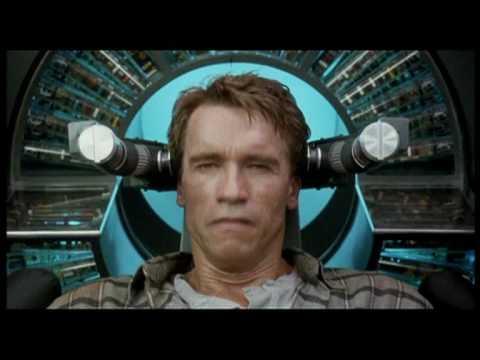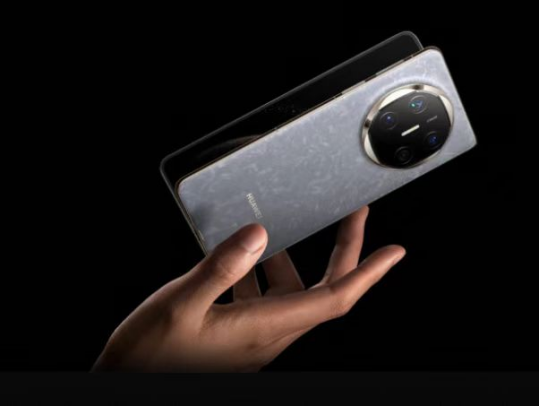The impact of science fiction films on the development of digital technology
Before the start of production on the sci-fi movie Minority Report in 2002, the film's director Steven Spielberg invited 15 experts to a 3-day think tank, in order to envision the technologies that will be developed by 2054, It is the year in which the events of the movie take place.
The summit resulted in an 80-page guide called “The Bible for 2054”, which includes the architectural, social, economic, political and technological aspects that describe life in that year. Some of them are already a reality today.
Science fiction films began appearing at the beginning of the last century, with the silent French film "A Journey to the Moon" in 1902. After that, science fiction films continued to be produced.
In 1927, the German silent film "Metropolis" appeared, which dealt with the future of humanity in 2026, where a woman named Maria, who was leading a workers' revolution, was kidnapped, a robot was made in her form, and then Maria the robot was returned to the workers' milieu with the aim of aborting the revolution. .
The following is a collection of science fiction films based on realistic foundations, which played an important role in the development of technology:
Star Trek - The Original Series - 1966
This TV series predicted many innovative inventions such as the flat screen, home computer and 3D printer. But the most famous of them was the mobile phone.
The American inventor Martin Cooper stated that the small communication device through which Captain Kirk spoke, in the 1966 Star Trek series, was the source of his inspiration for the mobile phone industry in 1973.
"2001: A Space Odyssey" - 1968
Google co-founder Sergey Brin wants to build a version of the HAL 9000 computer. ) capable of self-learning and independence in decision, which appeared in this film in 1968.
Hal showed sharp intelligence and the ability to understand and reject orders as well. He was one of the most verbal heroes in the film and the only one who expressed himself efficiently.
Back to the Future II - 1989
Nike launched in late 2018 the first version of the "Hyper Adapt" smart shoe that adapts automatically with the shape of the foot. The self-lacing Hyper Adapt shoe comes with a 3-day battery life.

These shoes are very similar to those worn by Mark McFly in the sequel to this movie. Nike's first release was limited to 89 pairs, each selling for $720.
Cristano Ronaldo was very impressed with him. This movie also predicted many future technologies, including drones.
Total Recall - 1990
Fleeing from a group out to kill him, Douglas Quaid (Arnold Schwarzenegger) gets into a car driven by a robot. The robot says: Hi I'm Johnny Cap, where do you want me to take you tonight? Douglas replies: Go..Go.. The robot asks him: Please repeat the name of the destination you are going to? Douglas says: To any place.. Go.. The robot says: Give me the name and street number.. Douglas begins to curse the robot sharply.. The robot replies: I do not know this address, can you repeat it?.. Douglas gets angry and takes the robot off its place and drives By himself.
The motorized car has appeared in animated films since the 1920s. But this movie shows just how careful one must be when dealing with an automated driver.
"Eternal Sunshine Of The Spotless Mind"- Production 2004
Clementon (Kate Winslet) resorts to a medical center that provides a service to erase bad memories, to erase her memories of the two years in which she knew her lover Ex Joel (Jim Carrey), to get rid of her suffering resulting from that relationship.
Joel knows what she did, so he resorts to the same center, and asks him to erase his memories associated with that relationship as well.
The events of the film reflect the protagonists' dealing with this technology, their acceptance of it, and its impact on their lives. This film won an Oscar in 2005 as Best Original Screenplay.
In the past few years, researchers at the Massachusetts Institute of Technology have been able to manipulate mice's memory by not only erasing parts of it, but making them remember events they had never encountered, by hacking into neurons in the hippocampus, the organ controlling memory. The researchers emphasized that this could, in principle, be applied to humans.
The Hitchhiker`s Guide to the Galaxy - 2005
Intelligent alien Ford Perfect, played by Mos Def, passes a yellow babblefish into his friend's ear Earthly Arthur Dent, played by actor Martin Freeman, in order to obtain a simultaneous translation from any language spoken by intelligent beings scattered on other planets, into the language that Arthur Dent understands (which is the English language in the film).
And giving the name Babel to the fish that unites languages is based on the legend of the city of Babylon and its tower, which its inhabitants sought to reach to the sky, which the god in this legend considered as a challenge to him, so he confused its inhabitants by dividing them into groups, each speaking a different language, which dispersed them and made them incomparably weak able to complete their project.
Google launched at the end of 2017 a tool that performs a similar function and called it "Pixel Buds", which are smart in-ear headphones designed to work with the Android operating system for mobile phones, but they It works on iPhones as well, if you install the Google Assistant and Google Translator app.
PixelPods uses the Google Translate app which covers more than 100 languages, but only 40 of them are available for instant translation through this tool currently.
The first speaker puts the headphones in his ears and speaks in the language he masters, then the speech is transmitted to the translation program via the mobile phone, which translates it into the language of the second speaker, then reads it out loud, and the second speaker answers in turn in the language he masters, where it is translated into the language of the first speaker and read to him , And so on..
Iron Man movie series - 2008 and later
Facebook CEO Mark Zuckerberg decided in 2016 to build an artificial intelligence system to manage his home and help him with his work.
This system gathers realities in the home through sensors and human commands, before taking the appropriate stance. Zuckerberg named the project after Jervis, who appeared in the Iron Man series of films. Jarvis is a fictional artificial intelligence that manages and takes care of all the internal systems of Iron Man's buildings and suits.
Jarvis Zuckerberg doesn't have the wit, humor, or superpowers of his fictional counterpart, but he's still impressive.










